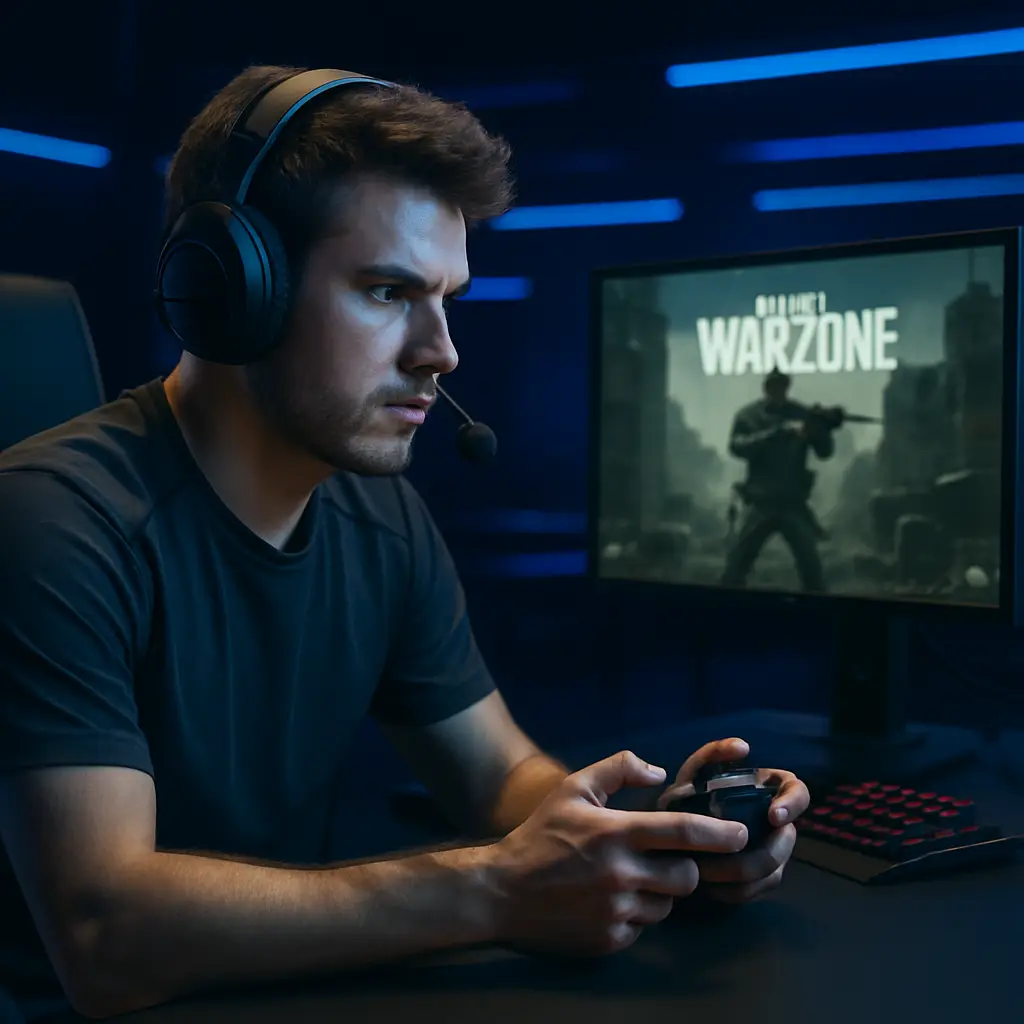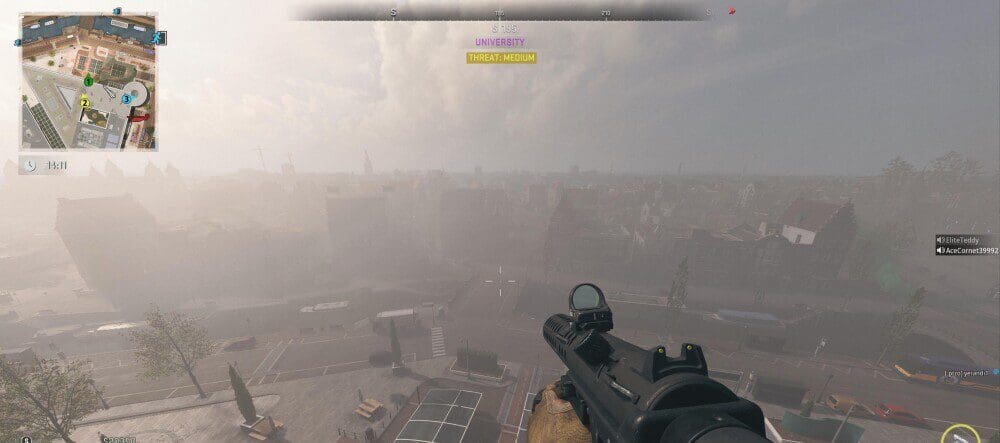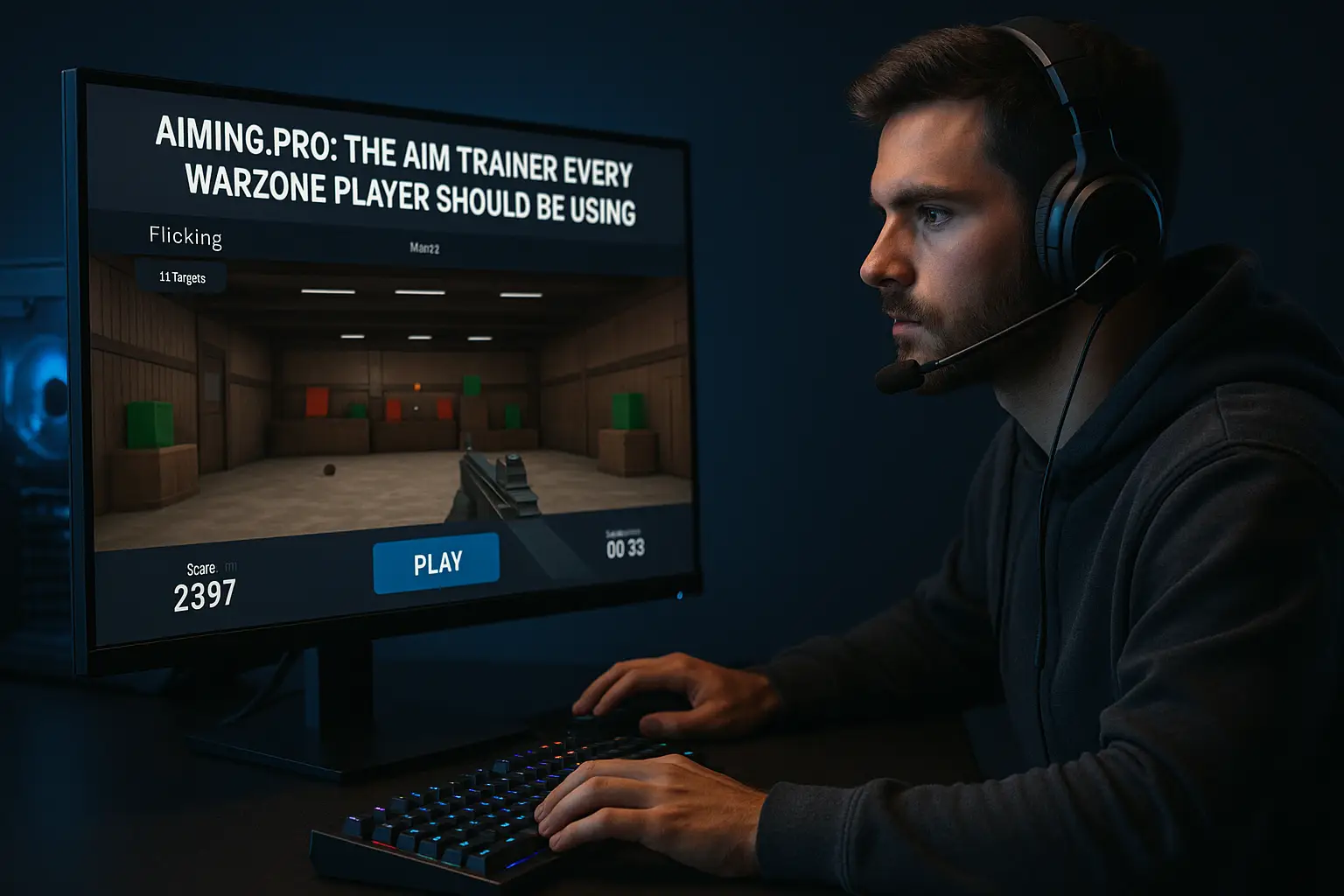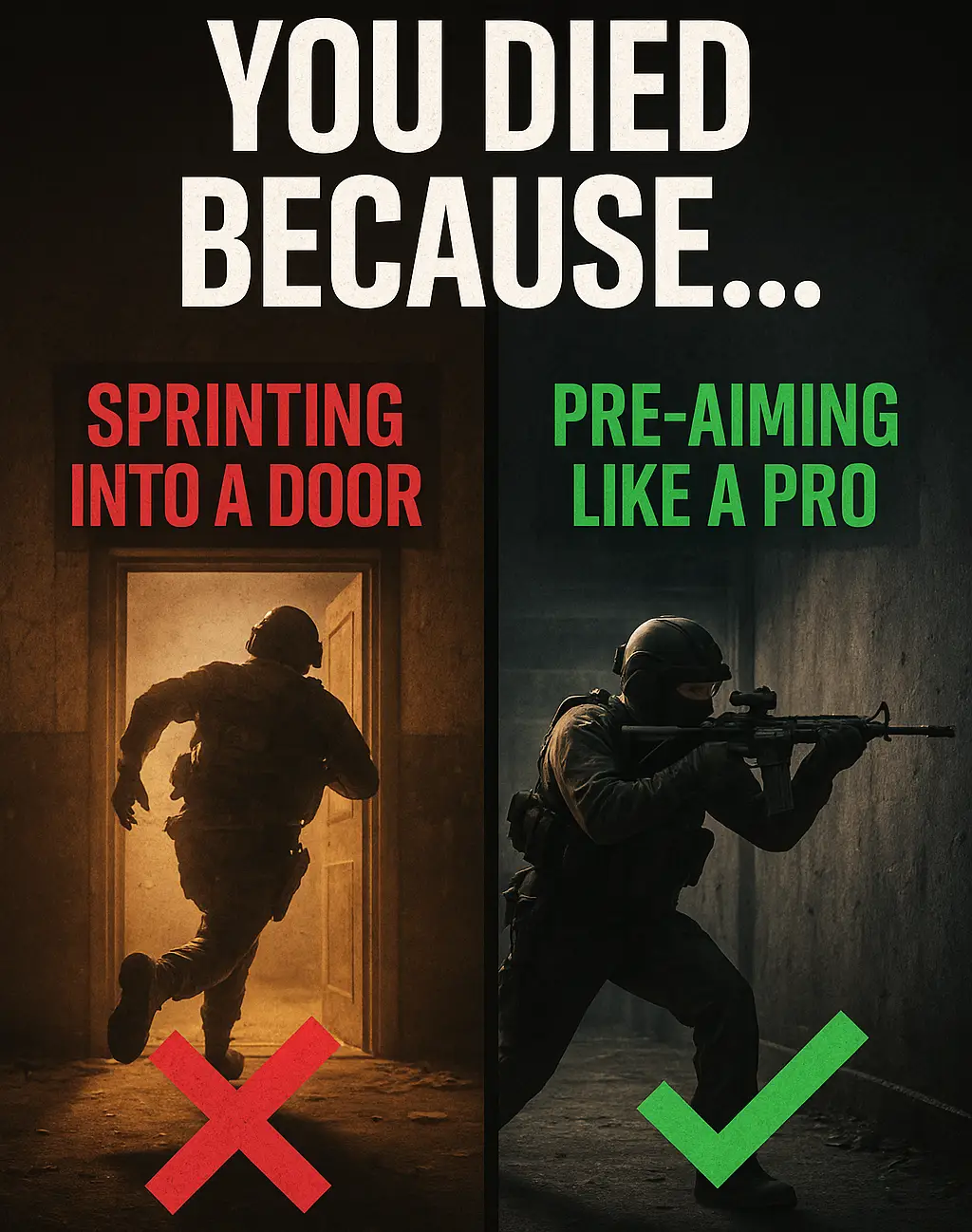
5 Tips to Master the Warzone COD Tactical Layout
Why Every Pro Player Uses the Tactical Layout in Warzone COD What Is the Tactical Layout and How Does It
Call of Duty is a competitive game, and after spending considerable time refining my skills, I’ve gained insights that can help beginners get good fast. In this guide, I cover everything from basic strategies to advanced tips to help you navigate in-game challenges. I share practical techniques and personal experiences to ensure that you start making progress from your very first match.
Success in Call of Duty begins with a strong understanding of the basic game mechanics. Paying attention to loadouts, map knowledge, and movement can significantly impact your performance. Getting familiar with various in-game options early on puts you in a better position to build confidence and create effective routines. Taking one step at a time allows you to solidify your fundamentals, and each small success ultimately lays the groundwork for more advanced tactics.
Focusing on one strategy at a time helps simplify the learning process. A popular approach is engaging in quick matches where your main goal is survival while checking out different combat strategies. As you take control of your gameplay, consider adjusting settings and customizing your controls to match your style. Minor improvements over time add to notable skill gains, and you will see results in your overall performance over many sessions. Consistency is essential when building muscle memory and game sense.
Adding further depth, analyze your match statistics and review replays. This not only helps you spot recurring mistakes but also allows you to understand which tactics work best in different scenarios. Whether planning an aggressive push or adopting a more defensive stance, keeping an eye out for opportunities to optimize every move makes a real difference.
Starting in Call of Duty can feel overwhelming, given the number of available game modes and the fast pace of action. One practical tip is to start with smaller matches. These shorter games let you familiarize yourself with the maps and learn where the main action happens. Knowing the layout helps you plan your movements better and avoid unexpected ambushes, which boosts your confidence and sets you up to try more advanced strategies as you improve.
Begin by picking a loadout that suits your comfort level. Experimenting with different attachments over time improves your aim and control, traits that come with continuous practice. A methodical approach like this lets you focus on mastering each component before advancing to more complex techniques. In addition, try different control setups to see which configuration feels most natural; over time, these minor tweaks can translate into significant in-game advantages.
It is essential to also work on communication when playing team-based modes. Even if you are new, using a microphone or the in-game chat to share basic information keeps your team coordinated. Over time, these practices build a strong foundation for success in matches. Learning to give clear instructions in the heat of the moment and making quick callouts a habit helps your team function like a tactical unit.
For newcomers, it may also help to spend some time in the game’s practice area or tutorial mode. This dedicated time allows you to get used to the pace of gameplay without the pressure of live matches, making it easier to adapt when you eventually step into competitive modes.
Every game has its learning curve. Some challenges are more common among new players, and addressing them early can lead to faster improvement. I have identified a few obstacles you might encounter and offered practical suggestions to overcome each one. By tackling these issues head-on, you can minimize frustration and build a smoother path to skill mastery.
Experimenting with control sensitivity in practice modes helps tailor the game to your style. I often start by lowering the sensitivity and gradually increasing it as I feel more at ease. Periodic changes in sensitivity settings let you adjust based on the match’s intensity and create a more personalized setup. Through consistent experimentation, you eventually settle on settings that make your reactions quick and measured.
Each map in Call of Duty presents unique challenges. Learning the locations of high-traffic areas, strong positions, and common pathways can give you a tactical edge. I routinely review maps between matches to commit key routes to memory and optimize my positioning on the battlefield. This thorough preparation ensures you are never caught off guard and helps plan strategic moves even under pressure.
Pick two or three weapons that suit your playing style. Spending extra time with a rifle or an SMG in practice modes can reveal subtle characteristics you might miss in hectic matches. As you gain confidence and a solid feel for these weapons, gradually integrate secondary options that complement your primary choice. This approach enables you to build expertise without becoming overwhelmed by too many variables.
Understanding when to engage or retreat comes with experience. I often review match replays to learn from my positioning mistakes, which helps me pinpoint moments when a defensive approach was more appropriate than advancing. Brilliant pacing helps conserve resources like health and ammunition and creates clear pathways toward strategic objectives. As you gain experience, recognizing patterns becomes instinctive, allowing for quicker, more effective decisions under pressure.
Addressing these challenges head-on shows that regular practice and a strong willingness to learn are key to progressive improvement. Each minor adjustment you make contributes to a smoother overall gaming experience and helps cement good habits early on in your gaming adventure.

Increasing your skill level requires more than mastering the basics. Moving forward, I like incorporating advanced techniques that polish my gaming experience. These strategies, when practiced deliberately, quickly boost performance. They are not solely about perfect shooting techniques but the overall game sense, map control, and tactical awareness in every match.
Optimize Your Loadout: I frequently experiment with different weapons and attachments. By understanding which combinations suit particular maps or game modes, you can tailor your equipment to fit your style of play. This process involves trial and error before discovering the perfect mix for you in battle. Experimentation is key here—spend time in practice modes trying out varied configurations and note what helps you feel comfortable during sudden encounters.
Refine Your Movement: Effective mobility is key in close-quarter and long-range engagements. Techniques such as sliding or jump-shotting can sometimes create unexpected advantages depending on the dynamics of the match. Watching recorded gameplay lets you pick up movement patterns that work well under pressure. By reviewing successful maneuvers from experienced players, you can incorporate similar techniques into your play style and adjust them to suit your strengths.
Study Advanced Tactics: Watching professional streams and recorded matches is very important. Observing advanced techniques offers practical advice on positioning, map control, and engaging enemies in various scenarios. There is no substitute for real-world examples for boosting your game sense, so I encourage you to follow streams and learn from top-tier players. Their strategies can inspire you to experiment and find creative solutions during your matches.
Focus on Communication: Clear and concise callouts of significantly different team modes. I always call out enemy locations and share critical information with my team. A brief but precise message can smooth team maneuvers and prevent confusion during intense combat. Over time, as your teammates learn your communication style, the entire squad benefits from improved coordination and more tactical plays.
Integrating these advanced strategies into your routine can take your gaming skills to the next level. Patience and persistence are key; through continuous practice and willingness to experiment with new techniques, you will start noticing steady improvements in your overall performance. Every skill you build, whether a movement technique or a loadout optimization, adds to a more effective and enjoyable gameplay experience.
While skill development is essential to your overall success, having the proper setup creates a smoother, more responsive gaming experience. I appreciate that tweaking your gaming environment provides a solid foundation for learning and growth. This section highlights key parts of your setup that can significantly impact your performance during matches.
Begin with a reliable gaming platform, whether a console or a PC. A reliable internet connection is a must to avoid frustrating lag during competitive games. From personal experience, investing in quality accessories such as a comfortable controller and a headset that delivers clear audio cues has made my gameplay much more enjoyable. These small investments improve your performance and help reduce fatigue during long sessions.
My years of experience have shown that even a slight investment in hardware can significantly improve your overall game flow. A gaming monitor with a high refresh rate, responsive control peripherals, and good audio equipment can make practice sessions less strenuous and more productive. Beyond hardware, customizing in-game settings like sensitivity, HUD configuration, and audio levels is equally important.
Spend ample time adjusting these settings until the game feels natural and intuitive; these adjustments can be the difference between feeling overwhelmed and being fully in command during chaotic matches.
Optimizing your setup is not just about the hardware; putting time into customizing in-game configurations, such as sensitivity adjustments and visual settings, can give you a clear edge over opponents. Constantly review your setup and make minor adjustments as new updates roll out or as you develop your personal play style.
For those looking to level up even more, checking out online forums and setting up reviews from top-tier gamers can be incredibly valuable. Their insights on gear and configurations often uncover clever tweaks you might have overlooked. This extra perspective can simplify the upgrade process and help you fine-tune your setup for optimal performance.
This section addresses some common questions that I often hear from new Call of Duty players. Each question has practical advice based on years of playing and experimenting with different strategies. The following responses draw directly from experiences and are designed to offer actionable tips that you can implement immediately.
Question: What is the best way to start improving my skills?
Answer: Start with short, focused sessions. Concentrating on one element at a time—like aiming or map awareness—makes the learning curve more manageable. Consistent practice, fine-tuning your control sensitivity, and reviewing your gameplay are proven ways to accelerate growth. As your skills steadily improve, your confidence will naturally follow.
Question: How important is team communication?
Answer: Clear communication is essential, especially in team-based game modes. I prioritize using concise callouts and sharing critical information with my team. This helps coordinate strategies and prevents confusion during intense moments. A team communicating well is often more successful, as every member is kept in the loop during fast-moving encounters.
Question: How can I best optimize my gaming settings?
Answer: Customizing your settings is a very personal process. Spend time in practice modes fine-tuning your control sensitivity, audio levels, and other settings until everything feels responsive and natural. As your skills grow and your play style shifts, don’t hesitate to revisit and adjust your setup—it’s all part of staying sharp and comfortable in-game.
Question: What role does hardware play in improving gameplay?
Answer: While skill is crucial, a stable and reliable setup helps eliminate unnecessary distractions. I make sure my system, controller, and internet connection are all running smoothly so I can stay focused on improving my gameplay without interruptions breaking my rhythm.
Improving at Call of Duty quickly involves a combination of persistent practice, thoughtful strategy, and an optimized gaming setup. Investing time in understanding the game’s mechanics, refining your loadout, and adjusting your environment lays the groundwork for lasting success. Every minor tweak you make is a step toward better performance, and sometimes, even seemingly minor adjustments can lead to unexpected advantages. Remember, progress may be gradual, but each match is a chance to learn and grow.
Beginning as a new player and eventually moving up to a competitive level takes perseverance. I’ve found that consistent practice and the willingness to learn from every experience are key to solidifying your growth. Setbacks are inevitable, but there are opportunities to learn and refine your approach. Each mistake is a lesson, and each victory is a testament to your dedication.
Over the long haul, mastering Call of Duty is as rewarding as it is challenging. With every match played, your call on the battlefield becomes more refined and strategic. Keep experimenting with different techniques, listen to what experienced players say, and never stop adjusting your approach. Combining technical skill, clear communication, and a well-optimized setup creates a pathway to genuine improvement.
Take the time to revisit your strategies periodically. Review old matches and compare them to your recent play, and you will notice a clear progression in your style. Whether you focus on refining your control sensitivity, honing your map awareness, or perfecting your loadout, every effort contributes to a well-rounded skill set that prepares you for any challenge the game can throw.
Call of Duty isn’t just a game—it’s a place where learning, competition, and personal growth come together. Stay dedicated to practicing, adjust your tactics with each lesson, and, most importantly, enjoy the journey as you level up one match at a time.
Thanks for reading, “Beginner’s Guide to Call of Duty: How to Get Good Fast.” If you enjoyed it, read Surviving The DMZ: Top Survival Tips For Call Of Duty DMZ.
Ask Questions: If you have any questions, feel free to leave them in the comments below.
Happy Gaming!

Why Every Pro Player Uses the Tactical Layout in Warzone COD What Is the Tactical Layout and How Does It

Best Aim Trainer for Warzone (Aiming.pro): Why Every Player Should Be Using It If you’re looking for the Best Aim

Warzone Sprint-to-Fire Delay Explained (Top 5 Secrets to Win More Fights in 2025) Field Brief: Understanding Warzone Sprint-to-Fire Delay “The